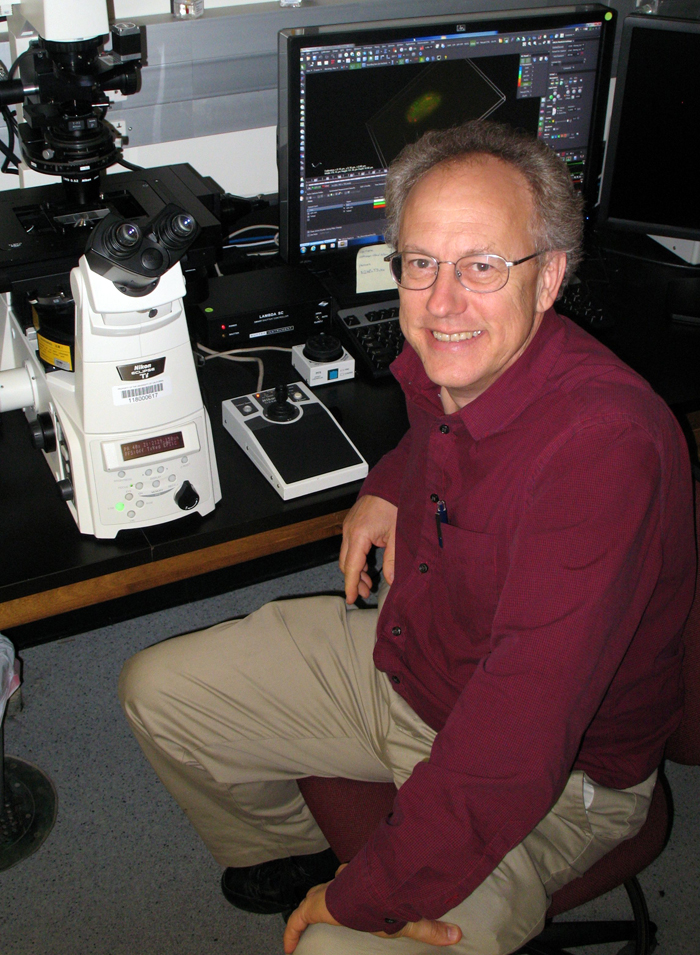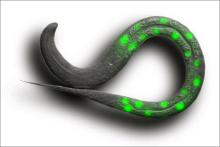
UC Santa Barbara Scientists Learn How to Unlock the Destiny of a Cell: A Gift for the Tin Man?

Scientists have discovered that breaking a biological signaling system in an embryo allows them to change the destiny of a cell. The findings could lead to new ways of making replacement organs.
The discovery was made in the laboratory of Joel H. Rothman, a professor in the Department of Molecular, Cellular, and Developmental Biology at UC Santa Barbara. The studies were reported in the interdisciplinary journal Genes and Development, and were carried out by Ph.D student Nareg Djabrayan, in collaboration with Rothman and two other members of the laboratory, Ph.D student Erica Sommermann and postdoctoral fellow Nathaniel Dudley.
"At some point along the way toward becoming part of a complete individual, cells become destined to choose a particular identity and long-term profession," Rothman noted.
"Once a cell chooses who it will be, it locks onto that identity for the remainder of its life."
A cell that is destined to become a heart cell functions exclusively in the heart until it dies, and never chooses later to change jobs by becoming, for example, a brain cell. "If Oz's wizard possessed the powers he claimed, and had a spare brain lying around, he could switch it to a heart as a gift for the Tin Man. And he could reverse the trick for the Scarecrow," Rothman said.
Similarly, the researchers have found a way to unlock cells' destinies and lead them to take on a new profession.
The scientists found that a widely used cell signaling system, known as "Notch" signaling, causes cells to commit to a particular occupation, such as a skin or brain cell. When they blocked the signal by genetic manipulation, the researchers discovered that they could force a cell to change its destiny, such that they instead became cells of the intestine.
"We found that we could break the signal in such a way that cells would follow their usual destinies, but were somehow less committed to doing so: We could convince them to change professions long after they would normally refuse to do so," Rothman said.
The scientists made the discovery by harnessing the genetics of a tiny nematode worm known as C. elegans, a model animal that has become famed in fundamental studies in biomedicine, and has been the subject of six Nobel prizes.
The researchers discovered that shutting off the Notch signal in early embryos made it possible for them to change the destiny of cells much later on, at a stage when they normally could not. "The later cells seemed to remember what had happened to their great-grandparent cells," Rothman said. "Imagine if the experience of your great-grandparents predestined you to become a lawyer, dentist, or coal miner, and you could not choose to change your professional destiny. That is what is happening to cells whose cellular ancestors received the Notch signal."
The research was supported by the National Institute of Child Health and Human Development and the California Institute of Regenerative Medicine.
The discovery could someday help scientists develop new ways to produce tissues and organs in the laboratory that could be used to replace a patient's injured, diseased, or aged organs. By unlocking a cell's normal destiny, it may be possible to change it into an altogether different type of cell that could be used to grow a new organ for a patient –– or perhaps, a Tin Man.
† Bottom image: Normal juvenile C. elegans worm in which all cell nuclei of the intestine are filled with a glowing green fluorescent protein. In embryos in which cell destiny has been changed (not shown in the image), cells that would normally be part of the brain or skin become intestine and show the green signal.
Credit: M. Maduro
Related Links



